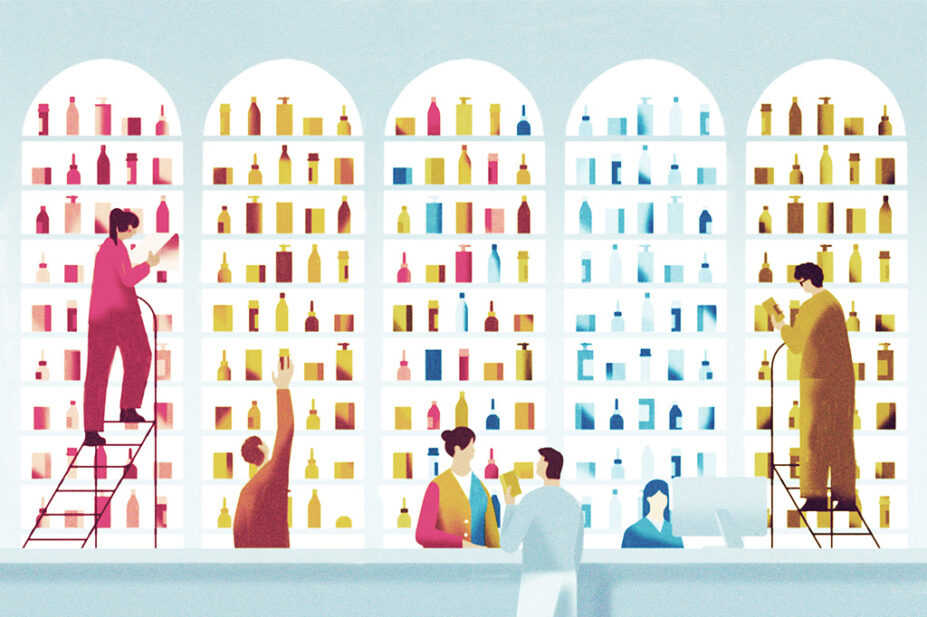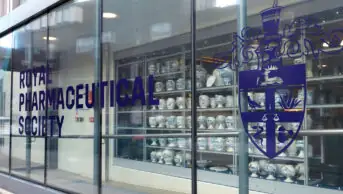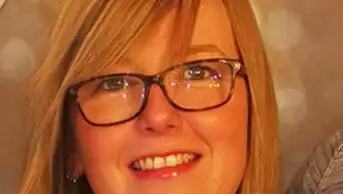
Paolo Beghini
Generalism is a misunderstood concept. In the wider world, where developing deep, specialist knowledge is seen as a passport to getting ahead, the art of understanding a broad range of subjects is seen as the forte of the dabbler or the amateur.
But, in the world of healthcare, this is far from the case. When it comes to medicine, general practitioners are recognised for their “deep contextual knowledge of patients and their family and social situation to understand and interpret symptoms and problems” and their ability to manage risk, ‘demedicalise’ problems and prevent onward referral to other services.
These skills are becoming more valued than ever in the NHS as it seeks to manage more care in the community, reduce costs and care for a more complex patient population.
But this has not been as well recognised in pharmacy.
Historically, pharmacists working at an advanced level of practice became specialists because advanced roles originated in secondary care, in which pharmacists were working with an individual consultant or within a specialty. However, as more and more pharmacists started working in general practice, advanced practice-level generalist roles began to be forged (see Box).
Box: When did advanced generalist roles emerge?
Pharmacists practising at an advanced level in a generalist specialty started to emerge in secondary care with the creation of medical assessment units, which began dealing with admissions prior to patients being allocated a bed within a specialty.
In England, advanced generalist pharmacist roles were introduced into primary care from 2015, when NHS England launched the ‘Clinical pharmacists in general practice’ pilot scheme[1].
This was followed by NHS England’s ‘Clinical pharmacists in general practice’ programme in 2015 and the ‘Medicines optimisation in care homes’ programme in 2018, which provided training pathways for generalist clinical pharmacist roles. Now, we are seeing a rise in advanced generalist pharmacists being employed as part of the primary care network contract directed enhanced service introduced in 2019 (PCN DES)[2–4].
“The GP workforce crisis and primary care workload were the initial drivers for the introduction of clinical pharmacist roles in primary care,” says Helen Middleton, lead pharmacist for primary care education (London and South East) at the Centre for Pharmacy Postgraduate Education.
“A shortage of GPs and pressures in primary care continue and there is now a better understanding of the unique set of skills an advanced pharmacist can bring to the multidisciplinary team in primary care, as laid out in the job specifications in the PCN DES.”
Whether the focus of advanced pharmacy practice should tilt towards generalism or specialism is a complex, almost philosophical, question.
Indeed, a paper on advanced pharmacy practice, published in the International Journal of Clinical Pharmacy in April 2021 by Paul Forsyth, lead pharmacist for clinical cardiology at NHS Greater Glasgow and Clyde, and fellow pharmacist Gordon Rushworth, argues that pharmacists wanting to practice as advanced clinicians need to extend beyond the limits of pharmaceutical care into the “poetry of complex clinical care”[5].
In the paper, they argue that, until now, “pharmacists have not actually been trained to autonomously manage risk and uncertainty”.
“There is no doubt they can identify issues of risk and uncertainty but autonomous management has been beyond the traditional scope of their practice.
“’Numbers-needed-to-treat’ and ‘numbers-needed-to-harm’, by definition measures of population effect, are also on their own not suitable vehicles for determining individual patient-level benefit or harm,” the authors wrote.
“Although necessary for building foundation-level competencies, does longer-term reliance on such simplified tools and guidance documents help or hinder our ability to foster pharmacists with advanced skill sets and understanding of the complex holistic tasks that they are being asked to provide in new advanced roles?”
Rushworth is programme director at Highlands and Islands Pharmacy Education and Research, as well as an advanced pharmacist practitioner in general practice. He also sits on NHS Scotland’s Advanced Pharmacist Practitioner Short-Life Working Group, which published its final report in February 2023[6].
The group was tasked with assessing how the pharmacy profession in Scotland could adapt and evolve to meet the NHS’s need to rebuild, grow and transform the services it provides following the COVID-19 pandemic.
The report “reimagines the limits of pharmacist-delivered care” and, helpfully, it begins by defining what constitutes advanced pharmacist practitioners.
Advanced pharmacist practitioners are, it says, “accredited advanced pharmacists working in a generalist speciality”.
“In addition to the expected characteristics of an advanced pharmacist, they possess the ability to manage patients through full episodes of care by autonomous application of a suite of advanced generalist clinical assessment, investigative, procedural, communicative, diagnostic, prescribing and decision-making skills, over a wide range of clinical systems and presentations specific to that specialism”.
People conflate advanced and specialist practice and get those concepts confused
Paul Forsyth, lead pharmacist for clinical cardiology at NHS Greater Glasgow and Clyde
The definition seems to include generalism and specialism, and Rushworth believes that there is often confusion around what these terms constitute.
“Generalism is a type of specialism,” he says. “If you look at medicine, the default isn’t that everybody becomes a GP; you have to train to become a GP and if you don’t cut the mustard and you don’t pass your certificate of completion of training, you don’t get to become a GP.
“People conflate advanced and specialist practice and get those concepts confused,” agrees Forsyth. “I could be a pre-registration trainee and work in a cancer unit but that doesn’t make me advanced.”
“If you look at our training, as pharmacists, we are trained to be experts in medicines governance,” says Rushworth. “We have examinations in how to dispense without errors, how to fill out a controlled drug register and these kinds of things. But are we good at having a patient coming in and knowing what drugs to prescribe, and at what level?”
Although pharmacists are good at following a protocol, he says, advanced practice is about being able to make decisions where there is higher risk or uncertainty.
Steve Williams, senior clinical pharmacist at Poole Bay and Bournemouth PCN, and formerly a consultant pharmacist in medicines and medication safety, who worked in medicines-related admissions at a Manchester University teaching hospital, also argues for the benefits of generalism among advanced practice pharmacists.
“As an advanced pharmacist, you cannot afford to become what I call a ‘specialist medicines specialist’, you have to remain a ‘generalist medicines specialist’,” he says.
“For instance, your cardiologist — if that’s the area you’re working in — is probably going to have as much in-depth knowledge about cardiology medicines as you are, but they will have lost interest in other more generalist areas, yet many of their patients will have multimorbidity and polypharmacy.”
How can you be a medicines specialist if you don’t consider the patient in a holistic, generalist way?
Steve Williams, senior clinical pharmacist at Poole Bay and Bournemouth PCN
Williams says that he has trained and mentored many pharmacists over the years and that, often, after completing additional clinical qualifications, they would say to him, “I’m now going to work as the cardiology or mental health pharmacist, so I don’t need to know about asthma etc. anymore”.
“I would tear a strip off them because how can you be a medicines specialist if you don’t consider the patient in a holistic, generalist way?” he says.
Williams believes that there is a need for ‘specialist medicines specialists’, but they cannot “think, act, or behave in an atomistic way, because as a pharmacist, and a medicines specialist, it is your role, not only in your direct care with patients but your indirect involvement with other people in the healthcare team who are providing that specialist care, to act as a holistic generalist within the team as well”.
Being able to “live in the grey and make decisions when the answer is not black or white” is what makes a pharmacist “advanced”, according to Forsyth.
He believes that the balance of generalist to specialist advanced pharmacist practitioners should be around 80:20.
However, he adds that the pharmacy profession needs to decide if it wants to work in the space of uncertainty occupied by advanced practitioners, and how it will support development of these skills.
Advanced pharmacist pathway
The first 300 pharmacists to be formally recognised as ‘advanced pharmacists’ by the Royal Pharmaceutical Society (RPS), Health Education England (HEE) and the Centre for Postgraduate Pharmacy Education, as part of a pathway in England, began their journey in March 2023, with more places expected to be made available later in 2023.
The pharmacists will receive funding to show that they meet the outcomes set out in the RPS Core Advanced Pharmacist Curriculum and, if they successfully complete the pathway, will receive a digital badge from HEE’s Centre for Advancing Practice[7].
Joseph Oakley, associate director for education and development at the RPS, describes it as a “milestone in recognising and assuring advanced pharmacist practice in England”.
The RPS’s core advanced curriculum sets out the entry-level standard for advanced pharmacists working in any patient-facing role and is designed to bridge the gap between the organisation’s registration foundation curriculum and its consultant curriculum.
Oakley previously told The Pharmaceutical Journal that the RPS’s vision is that, ultimately, credentialing of advanced practice will be linked to some form of regulatory annotation to an individual’s career progression, their job title and their salary, “because then there is a real demonstrable difference and recognition of that advancement”.
The focus of the framework, Oakley says, is to target pharmacists working in patient-facing roles, and to demonstrate that a pharmacist has the competence and will be safe to practise in more complex roles. The aim is to demonstrate capability as a practising pharmacist, rather than specialist knowledge in one particular clinical area.
This is also the case for consultant accreditation, although it is not yet reflected in the pharmacists who are applying for accreditation. The RPS ‘annual credentialing report’, published in March 2023, shows that only 1 of the 32 successfully credentialed consultant pharmacists in 2022 listed general practice as their broad area of clinical practice[8]. However, this is only the second year that the RPS has been credentialing pharmacists and numbers are still small.
Consultant pharmacists are, arguably, ultra-advanced practitioners, but the RPS’s own list of existing consultant pharmacist posts in England and Wales suggests that the focus among these practitioners leans towards specialist areas of practice. The list of 100-plus consultant posts includes only 3 that are not clearly specialist; they are listed as either consultants in primary care or consultants in primary care and medicines optimisation.
Not a new debate
Demarcation between specialism and generalism is not limited to pharmacy. An independent commission, chaired by Baroness Finlay, a former professor of palliative care, and commissioned jointly by think tank the Health Foundation and the Royal College of GPs, concluded in 2011 that more of the UK’s most talented doctors must be encouraged to make careers as generalists, rather than specialists, to meet changing health needs[9]. It called for medical training to be made more generalist in content and said that health bodies should be rewarded for promoting the concept of generalism in their institution.
More recently, in May 2023, the British Medical Association’s conference of Local Medical Committees, which represents GPs, voted to rebrand themselves as “consultants in family medicine”, with some GPs expressing frustration that they are underappreciated, despite being “expert medical generalists”, and that more value is placed on being a consultant[10].
Jonathan Griffiths, a GP and associate medical director for primary care at Cheshire and Merseyside Health and Care Partnership, gave a TED talk on the debate between generalism and specialism in the medical world in 2016. He believes a greater focus has been brought to the debate between generalist and specialist pharmacists because of the increase in pharmacists working for PCNs as part of the Additional Roles Reimbursement Scheme.
As of December 2022, 3,880 full-time-equivalent pharmacists were working for PCNs, including 330 working at advanced practitioner level.
What we really need is holistic care, primed to tackle multimorbidity and polypharmacy
Jonathan Griffiths, a GP and associate medical director for primary care at Cheshire and Merseyside Health and Care Partnership
“What do we want from those pharmacists?’ asks Griffiths.
“I think we want generalists because what we really need is holistic care, primed to tackle multimorbidity and polypharmacy. And the risk of having people in specialist care is that you don’t get that holistic care. You need to have the overall view of all of someone’s medicines, because if you squeeze the balloon at one end, it pops up somewhere else.”
Helen Middleton, lead pharmacist for primary care education (London and South East) at the Centre for Pharmacy Postgraduate Education, believes that the requirement for more advanced generalists is likely to continue because of the changes in healthcare.
“With an ageing population, increased multimorbidity and complexity, an increase in mental health conditions, and the changing face of medication, with genomics and increasingly targeted therapy, there will be a need to develop advanced clinical support for people with complex needs to optimise medicines through shared decision making,” she says.
A paper presented at the UK Clinical Pharmacy Association’s conference in 2016 revealed survey results showing that while almost the same number of foundation-level hospital pharmacists agreed that both specialist and generalist knowledge was important when working as a ‘senior pharmacist’, twice as many saw a future career as a specialist rather than an advanced generalist pharmacist[11].
The numbers in the survey were small, but it suggests that any move to develop more advanced pharmacists with generalist skills could require a cultural shift, in addition to workforce planning and training architecture.
Forsyth suggests a three-pronged approach to improve the development of advanced generalist pharmacists: establish clarity of their job role and the skills needed to do it; give them protected development time, with clear expectations of what this is for; and provide mentorship from an “experienced and credible actively practising senior peer”.
- 1NHS England and Health Education England, Royal College of General Practitioners, BMA. Clinical Pharmacists in General Practice Pilot. NHS England. 2015.https://www.england.nhs.uk/commissioning/wp-content/uploads/sites/12/2015/07/clinical-pharmacists-gp-pilot.pdf (accessed 6 Jun 2023).
- 2Medicines optimisation in care homes. NHS England. 2018.https://www.england.nhs.uk/wp-content/uploads/2018/03/medicines-optimisation-in-care-homes-programme-overview.pdf (accessed 6 Jun 2023).
- 3Clinical pharmacists. NHS England. https://www.england.nhs.uk/gp/expanding-our-workforce/cp-gp/ (accessed 6 Jun 2023).
- 4GP Contract. NHS England. https://www.england.nhs.uk/gp/investment/gp-contract/ (accessed 6 Jun 2023).
- 5Forsyth P, Rushworth GF. Advanced pharmacist practice: where is the United Kingdom in pursuit of this ‘Brave New World’? Int J Clin Pharm. 2021;43:1426–30. doi:10.1007/s11096-021-01276-5
- 6NHS Scotland Advanced Pharmacist Practitioner Short Life Working Group. Final report and recommendations to the NHS Scotland Pharmacists Post-Registration Strategic Group. NHS Scotland Advanced Pharmacist Practitioner Short Life Working Group 2023.
- 7RPS Core Advanced Pharmacist Curriculum. Royal Pharmaceutical Society. https://www.rpharms.com/development/credentialing/core-advanced-pharmacist-curriculum (accessed 6 Jun 2023).
- 8Royal Pharmaceutical Society. RPS Annual Credentialing Report 2022. Royal Pharmaceutical Society. 2023.https://www.rpharms.com/Portals/0/Credentialing/RPS%20Annual%20credentialing%20report%202022%20final.pdf?ver=spMTf5yMraBSMpAunhwXEw%3d%3d (accessed 6 Jun 2023).
- 9Independent Commission for the Royal College of Practitioners and the Health Foundation. Guiding patients through complexity: modern medical generalism. The Health Foundation. 2011.https://www.health.org.uk/publications/guiding-patients-through-complexity-modern-medical-generalism (accessed 6 Jun 2023).
- 10Coombes R. GPs back plans to rebrand as “consultants in family medicine”. BMJ. 2023;:p1182. doi:10.1136/bmj.p1182
- 11Preece D, Medlinskiene K. Specialist or advanced generalist pharmacist? Researchgate.net. 2016.https://www.researchgate.net/publication/309726670_Specialist_or_advanced_generalist_pharmacist (accessed 6 Jun 2023).


